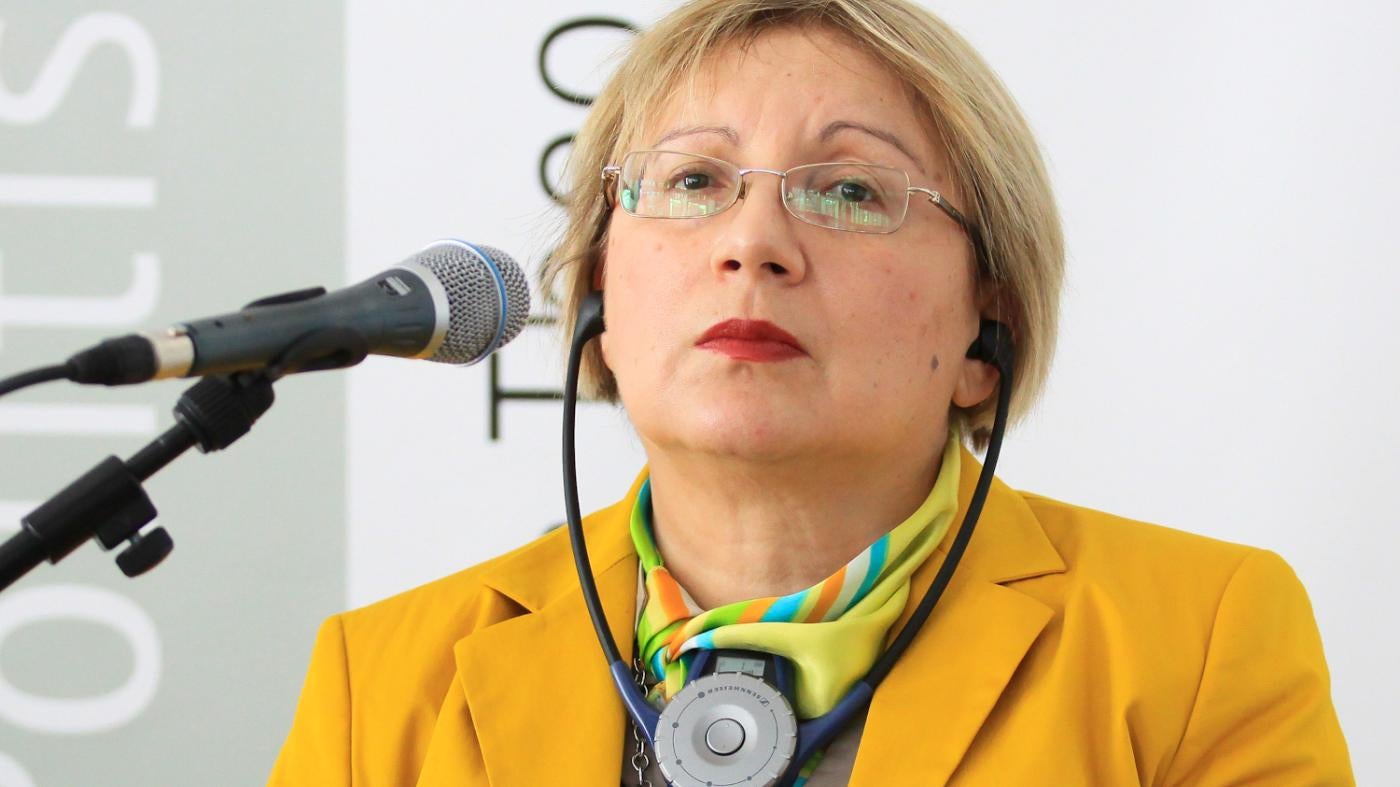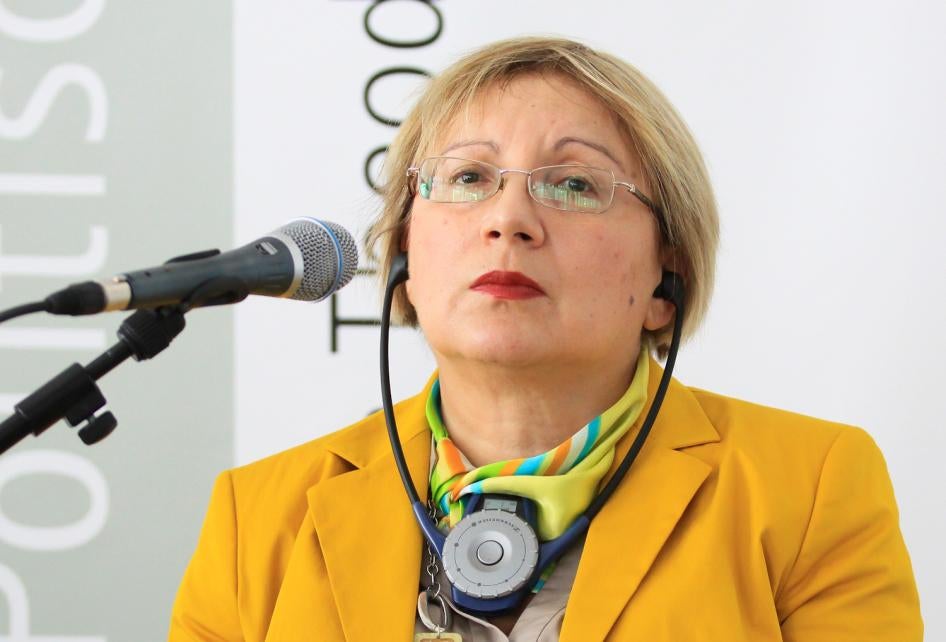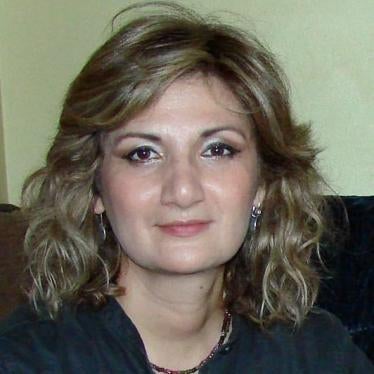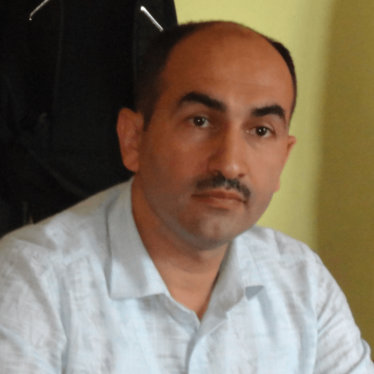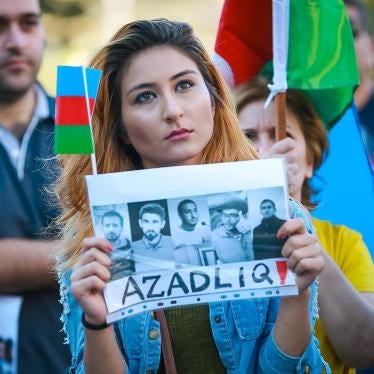Leyla Yunus’s family in Azerbaijan suffered the worst of Bolshevism and then Stalinism, as her relatives were shot or sent to internal exile. Her grandfather, who died when she was 18, told her that although he was sent to prison, he avoided being sent to Siberia because an investigator intervened on his behalf.
Yunus, 60, is one of Azerbaijan’s leading human rights defenders. She was both moved by these stories of the fear repression breeds and inspired by people who stand in solidarity. Her first public act of standing up for human rights was in 1984, when she signed a petition calling for the right of Crimean Tatars, an ethnic group Stalin deported en masse from their homeland, to return to Crimea. Early in the glasnost era she was a Baku correspondent for Ekspress Khronika, a weekly human rights bulletin.
In 1994, she founded the Institute for Peace and Democracy, an independent group that documented cases of people imprisoned on politically motivated charges. One of her proudest achievements was getting the Council of Europe, Europe’s intergovernmental human rights body, to put these cases—she had a list of 716—on the agenda as Azerbaijan sought membership into the organization. Many prominent prisoners—some with life sentences ---- were freed as a result.
The institute also worked to combat human trafficking in 2009. In one egregious case, she documented police involvement in kidnapping of a young girl. After she spoke out about it, naming the police who were implicated, the authorities threatened her daughter, Dinara. Yunus promptly arranged to have Dinara seek asylum in the Netherlands. “They used my weakest spot,” Yunus said.
The group also documented cases in which the authorities expropriated and demolished people’s homes without due process and adequate compensation, for urban renewal projects, including in her neighborhood. In retribution, the authorities unlawfully demolished her own home and office in 2011, and she lost her archives, family photographs, everything.
In 2014, during a government crackdown on civil society, she was arrested as she was compiling a new list of politically motivated prosecutions. Six days later, authorities arrested her husband, Arif, a historian and an expert with the institute. A court sentenced them to long prison terms on politically motivated charges for running two unregistered human rights groups. The trial was a grim travesty. At one point her husband was so ill that he had to lie with his head on her lap in the stifling courtroom.
They were freed toward the end of 2015, and in 2016 were allowed to go to the Netherlands for badly needed medical treatment. There they joined Dinara, who had fought unrelentingly for their freedom. They cannot return to Azerbaijan, Leyla Yunus said, because of an outstanding treason investigation against them.
When Leyla Yunus started as an activist in the late Soviet era, being part of a movement for freedom, with broad international support, inspired her. Although ailing from imprisonment and ill-treatment in custody, she remains as determined as ever to work to free people jailed on politically motivated charges and to restore that international support, so that civil society in Azerbaijan is not alone.
Since its independence from the Soviet Union, Azerbaijan is more authoritarian than it has been in 25 years. As the country’s oil revenues decline, the government crackdown on civil society organizations and activists has sharpened. On 26 October, the Board of the Extractive Industries Transparency Initiative (EITI), an international initiative promoting good governance by resource-rich countries, will decide whether Azerbaijan should be further sanctioned for falling short of commitments it has made under the initiative. These profiles, a joint initiative with Publish What You Pay, highlight how the crackdown has affected activists, including those involved in the EITI. They underscore why strong action is urgently needed to protect activists in Azerbaijan.
